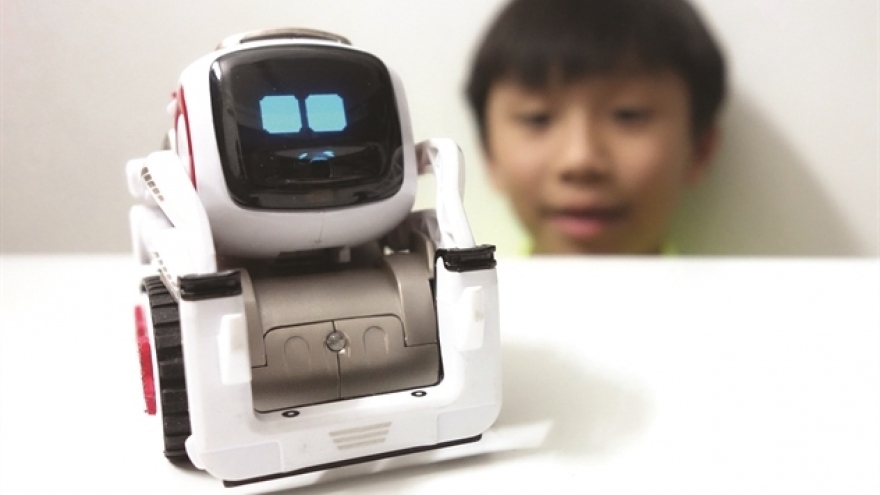Will Vietnam become an AI hub?
Le Hong Viet, technology director of FPT, the Vietnamese largest information technology firm, said AI (artificial intelligence) has had an extremely big impact on the economy and society.
 |
It is expected that AI will make up US$15.7 trillion in the global economy. From 2020, the global GDP will grow more rapidly than the previous period, of which 50% will come from AI’s influence.
In Vietnam, AI is being used in apps such as face-identification technology cameras, smartphone chatbots, self-propelling vehicles, and nano robots.
However, Viet said with limited financial capability, Vietnamese enterprises should think carefully about what they need. “Vietnam may waste time on research that Google, Facebook and Microsoft have done,” he said.
“Vietnamese scientists should help businesses catch up with the fourth industrial revolution,” said Nguyen Xuan Hoai, head of the Information Technology Research & Development Institute, an arm of the Hanoi University.
Five or six months ago, the owner of a large seafood company came to see Hoai, The company exported US$1 billion worth of seafood products in 2017.
The owner of the company said he wanted an automatic recognition system which processes each shrimp. He hopes the system can help increase the company’s export turnover to US$3 billion in the next three years without having to employ more workers.
“This shows that Vietnam’s enterprises are eager to use new technologies. And not only businesses, but farmers also have high demand,” he said.
Hoai believes that it is not imperative to do research and development to invent new technologies, but scientists can offer the world’s advanced technologies to Vietnam and localize them to fit Vietnamese conditions.
He explained that in many cases, modern technologies need adjustments to work properly in Vietnam.
In agriculture, for example, software that helps recognize rice grains, used in Japan, may not be used in Vietnam. Japan’s grain is round, while Vietnam’s is long.
Agreeing with Hoai, Deputy Minister of Science & Technology Bui The Duy said in the 1960s, the Republic of Korea also did this.
Research institutes in the country then gathered strength on helping enterprises import and localize technologies. Twenty years later, universities and research institutes began their research and development (R&D).
The demand from people and businesses is high, while advanced technologies are available in the world market. But scientists need to connect businesses and transfer technologies.
“It is necessary to make science become more simple and applicable to businesses,” Viet commented.

